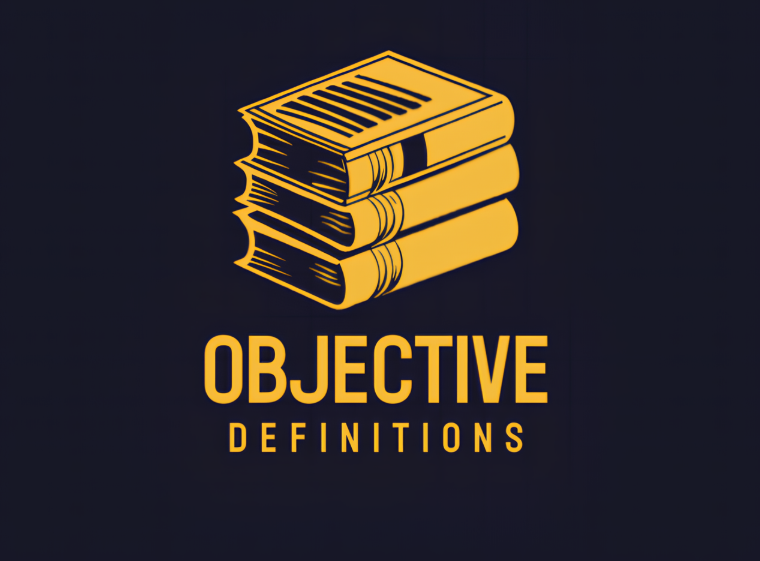
This is my page on objective definitions. Words are visual-auditory symbols which we use to represent concepts. Concepts are objective and it's crucial we have a proper and accurate understanding of the words we use for cognition and communication.
Definition:
A succinct identification of a concepts objective, essential, distinguishing and universal characteristics.
Definitions are subject to update.
A.
Affection: A desirable feeling of closeness.
Addiction: A willful, repeated, detrimental, difficult to control behaviour.
Aggression: Hostile behaviour.
Ambition: The desire to have more.
Anarchy: A social model without rulers, governed by rules.
Anger: An aggressive feeling response to a value threat.
Approval: Positive acceptance of utility
B.
Belief: To accept something as true with incomplete evidence and without certainty.
C.
Care: Comprehending support of a value.
Capitalism: Voluntary trade.
Cause: The responsible factor for a change.
Change: An alteration of state.
Concept: A mental representation of anything.
Connection: A relation between 2 or more things, positive or negative.
Consciousness: Awareness of awareness.
Conscience: Implicit understanding of morality.
Cruelty: Deliberately causing unjustifiable pain, suffering, torment or agony.
D.
Depression: A hopeless emotional state that feels happiness is impossible.
Desire: The ability to preference.
Disappointment: A feeling of unmet expectations.
E.
Effect: The result proceeding a cause.
Enemy: An adversarial force which intends or causes harm.
Enlightenment: Consciously free from deception.
Eudaimonia: A state of happiness achieved by being good and living good.
Equity: Just, fair and right human treatment according to logic.
Evil: Causing or supporting cruelty and profound immorality.
Evidence: Fact or testimony which advances a case towards proof or a conclusion.
Existence: The state of something with current identity.
F.
Faith: Belief contrary to evidence.
Fear: A strong feeling of repulsion.
Focus: Narrow target awareness.
Fraud: A deception to induce another to give up property or surrender a right.
Freedom: The capacity to perform actions governed by external conditions.
Free will: The ability to consciously choose to perform any possible action.
G.
Good: 1. Desired beneficial utility. 2. Morally righteous.
Greed: The acquisition of what you have no right to, especially to deprive another.
H.
Happiness: An intellectually satisfying state of purposeful, non-contradictory approval.
Hate: A strong feeling that wishes to destroy an anti-value.
Hostile: An antagonistic person or thing, typically violent and aggressive.
Human: A mammal with the capacity for great intelligence and a body to express it.
I.
Immoral: Any action which violates morality.
Immorality: Anything in opposition to morality.
Imposition: The initiation of non-consensual, inimical force or fraud.
Independent: A self reliant and determining system
Inimical: Harmful or hostile forces.
J.
Joy: Intense pleasure produced by a happy event.
K.
L.
Leader: One who is responsible for directing an organisation.
Lie: A claim that fiction is fact.
Like: Subjective contextual approval.
Logic: The immutable laws of reality, their function and application.
Loneliness: An uncomfortable feeling of isolation with the desire to connect.
Love: A feeling of connection, toxic in excess.
Luck: Occurring by unintentional chance.
Lucky: Favoured by unintentional chance.
M.
Man: A fully matured male of the human species.
Moral: In alignment with morality.
Morality: An objective and fundamental code of non-hypocritical, equitable conduct, applicable to men and their interactions with other life, for the purpose of peace and eudaimonia.
N.
O.
Objectivity: Reality independent of consciousness.
Objective law: A code of action, prohibition and remedy, derived from objective morality which governs mans interactions.
P.
Pleasure: A positive and desirable bodily sensation.
Power: The ability to create desired change.
Principle: A summary of concretes to guide action.
Proof: Demonstrable certainty.
Q.
R.
Reality: The totality of existence
Rights: 1. Conditions of existence necessary for humanity's proper survival.
2. The ability to perform any action, provided it does not cause imposition.
Righteous:
Passionately determined to be moral.
Righteousness:
A strong conviction of passionate dedication to morality.
Ruler: One who controls via unjustifiable force and fraud.
S.
Sad: 1. A feeling of deprivation or loss in regards to a value. 2. A feeling of undesirable emptiness due to the absence of a value.
Something: A particular thing, which could be anything.
Sovereignty: Personal supremacy governed by independent rationality.
State: A current disposition.
Subjective: The relationship between reality and ones feelings.
Succinct: The greatest possible compression of information.
T.
Terror: An overwhelming feeling of repulsion.
Theism: The belief that reality was created, is owned and is controlled by a mind/s.
Thing: An entity, state, relationship, being, idea, concept, force, imagination, dream etc...
U.
Utility: Performance of a desired function
V.
Value: Something subjectively desirable according to worth.
Vice: A negative quality which causes harm to either self or others.
Virtue: A positive quality which aids in proper survival.
W.
War: The most escalated and prolonged type of violent conflict between two or more parties.
Will: Intentional causality.
Willignorance: Wilful ignorance.
Word: A visual and auditory symbol representing a concept.
Worth: The subjective sum of the cost to benefit ratio.
X.
Y.
Z.
 James The Traveller
James The Traveller
The Primarch is the home page of my various works, collated into one neat and easily accessible place. The term Primarch can be translated to mean primary ruler, first leader or prime archon. This is in reference to my fundamental philosophy that each man and woman should be their own master, or Primarch if you will. An alternative but principally fungible name is The Sovereign. To me, a sovereign is a lord of one, the self.
Feel free to explore my work. It's been categorised into specific branches of study for ease of access. I recommend browsing through it all to see what there is before starting. Enjoy.
If you'd like to contact me, I'm very approachable and appreciate connecting with fellow minds.

